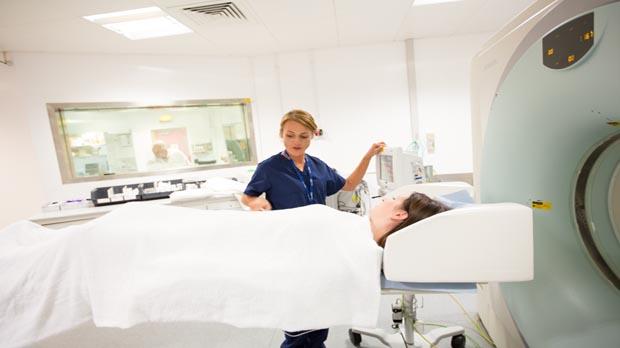
Last year in the UK over 60,000 cancer patients enrolled on clinical trials aimed at improving cancer treatments and making them available to all.
Please note - this trial is no longer recruiting patients. We hope to add results when they are available.
This trial is comparing gemcitabine and vandetanib to gemcitabine alone for people with pancreatic cancer. This trial is supported by Cancer Research UK.
Doctors usually treat pancreatic cancer with gemcitabine if it cannot be removed with surgery.
Pancreatic cancer is very difficult to treat. Even if it has not spread anywhere else in the body, surgery to remove pancreatic cancer may not be possible. Researchers are looking for new ways of treating pancreatic cancer that cannot be removed with surgery.
In this trial they want to use a new drug vandetanib with gemcitabine.
Vandetanib is a type of biological therapy called a tyrosine kinase inhibitor (TKI for short).
Tyrosine kinase is a chemical messenger (an enzyme) that sends messages to cells telling them to grow and divide. Blocking the effect of tyrosine kinase may stop cancer cells from growing and spreading.
The aims of this trial are
You may be able to enter this trial if you
You cannot enter this trial if you
 )
)This trial will recruit 140 people in the UK. This is a randomised trial. The people taking part are put into 2 treatment groups by a computer. Neither you nor your doctor will be able to decide which group you are in. You will not know which group you are in either. This is called a ‘blind’ trial.
 )
)Everybody taking part has gemcitabine through a drip into a vein once a week for 7 weeks. Then a week with no gemcitabine.
After the first 8 weeks you now have gemcitabine once a week for 3 weeks followed by a week off. Each 4 week period is called a cycle.
Each treatment takes about 30 minutes.
People in group A take placebo tablets and people in group B take vandetanib tablets every day, even during the week they are not having gemcitabine.
You have gemcitabine and vandetanib or placebo for as long as the treatment is working.
If you agree to take part in this study, the researchers will ask for a sample of tissue taken when you had surgery to remove your cancer. If there is no tissue available from your original surgery the researchers may ask if they can take another  of your cancer.
of your cancer.
The researchers will also ask you for some extra blood samples.
The tissue and blood samples will be used to find out more about pancreatic cancer and its treatment in the future.
If you don’t want to give tissue or blood samples for this study, you do not have to. You can still take part in the trial.
You will see the doctors and have some tests before you start treatment. The tests include
 )
)You will have more heart traces (ECGs) recorded during the first 12 weeks of the trial.
Each time you have gemcitabine you have a blood test and you will be asked about any pain you have been having.
Every 4 weeks you have a physical examination.
You have a CT scan every 3 months until the cancer starts to grow.
You will continue on the trial until your cancer starts to grow or you no longer want to be in the trial.
7 days after you finish the trial treatment you will see the doctors. You then see them every 3 months in clinic or they can ring you at home.
The most common side effects of gemcitabine are
The most common side effects of vandatanib are
We have more information about gemcitabine.
Please note: In order to join a trial you will need to discuss it with your doctor, unless otherwise specified.
Dr Gary Middleton
AstraZeneca
Cancer Research UK
Experimental Cancer Medicine Centre (ECMC)
Liverpool Cancer Trials Unit
NIHR Clinical Research Network: Cancer
Royal Liverpool and Broadgreen University Hospital NHS Trust
University of Liverpool
This is Cancer Research UK trial number CRUKE/10/025.
If you have questions about the trial please contact our cancer information nurses
Freephone 0808 800 4040

Last year in the UK over 60,000 cancer patients enrolled on clinical trials aimed at improving cancer treatments and making them available to all.